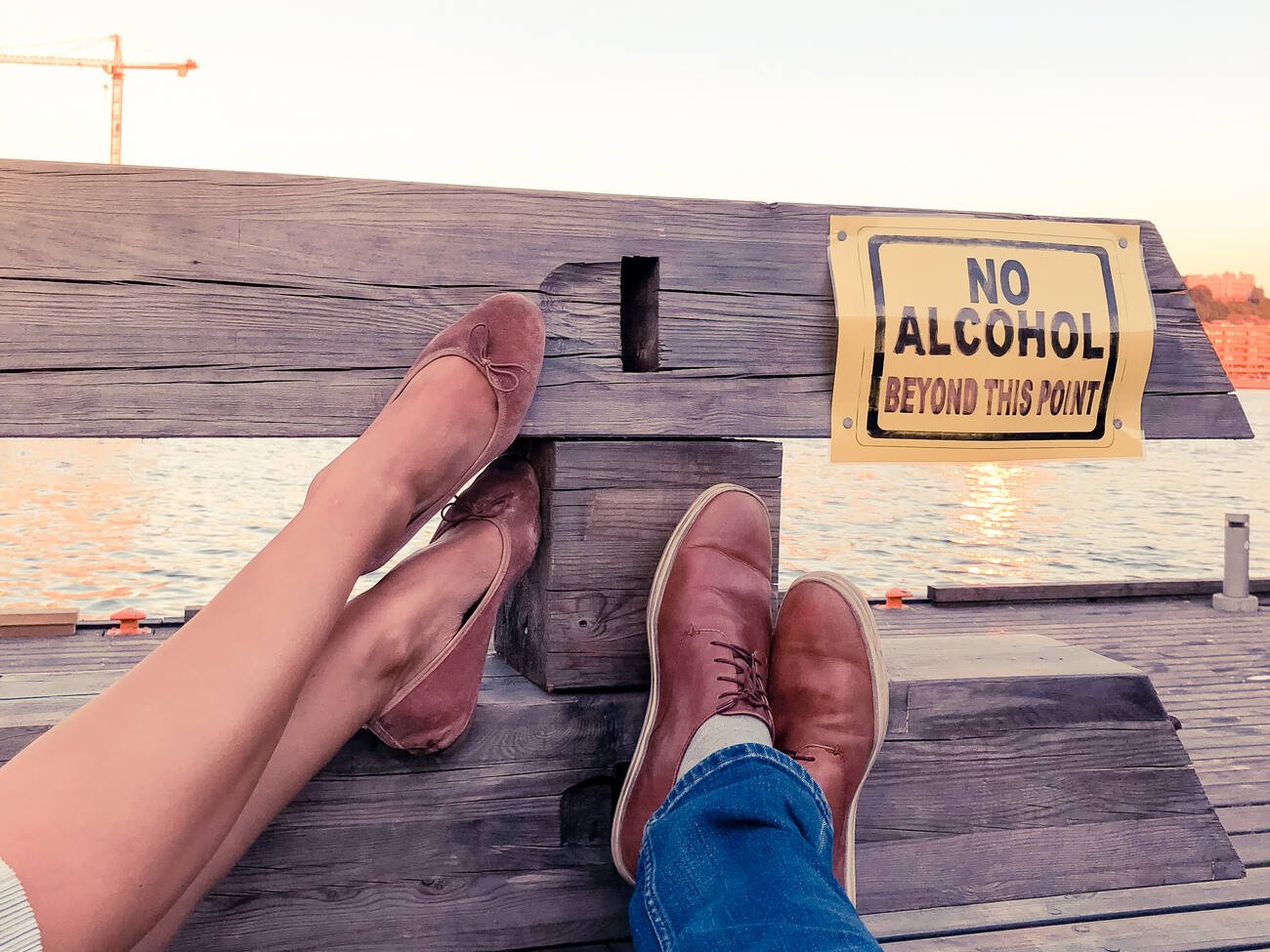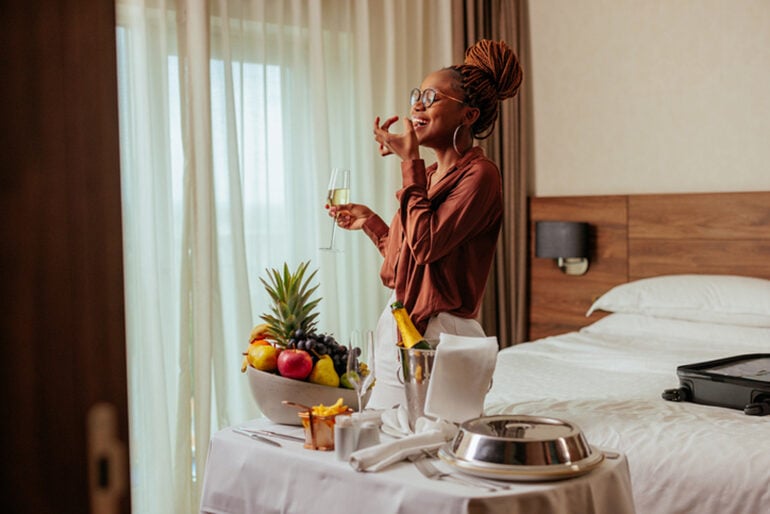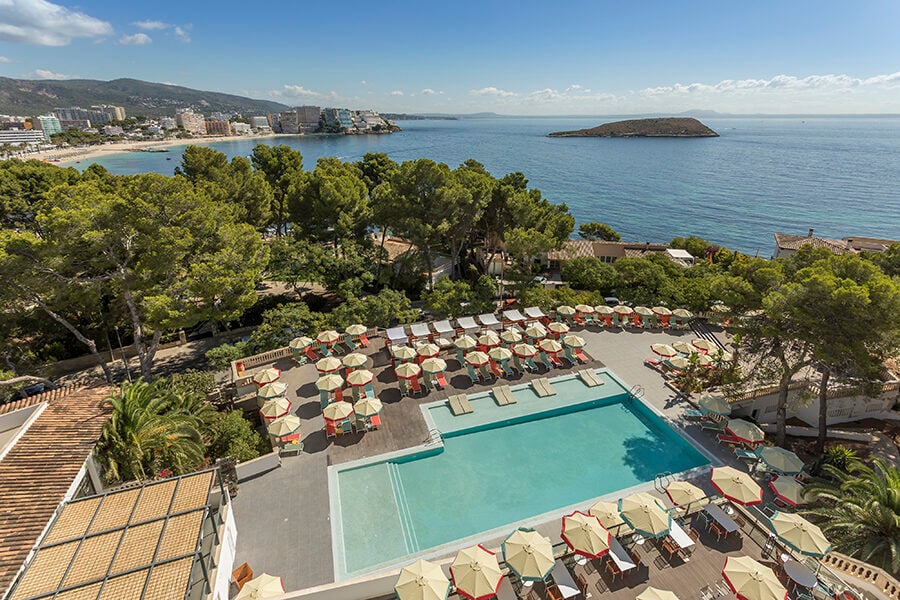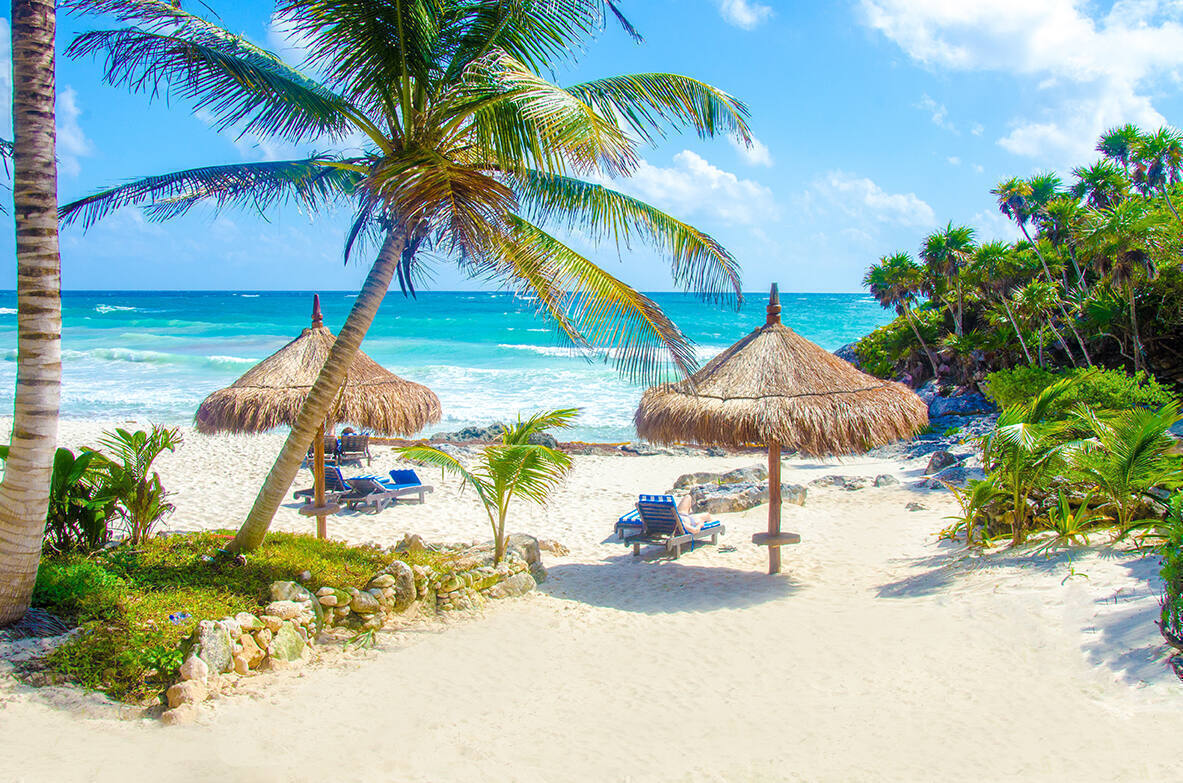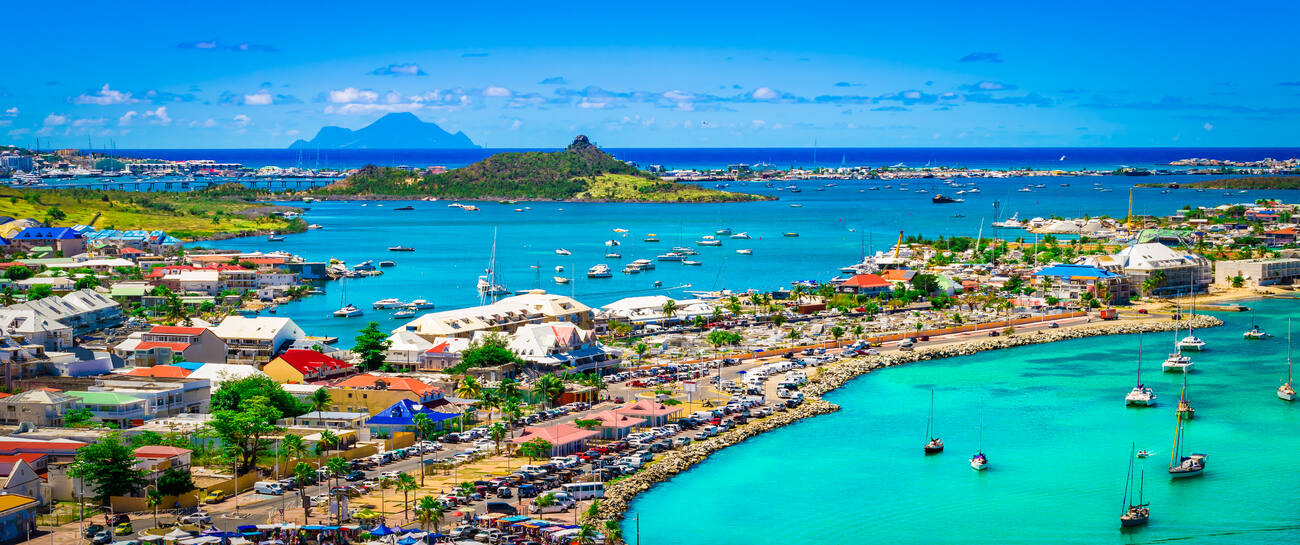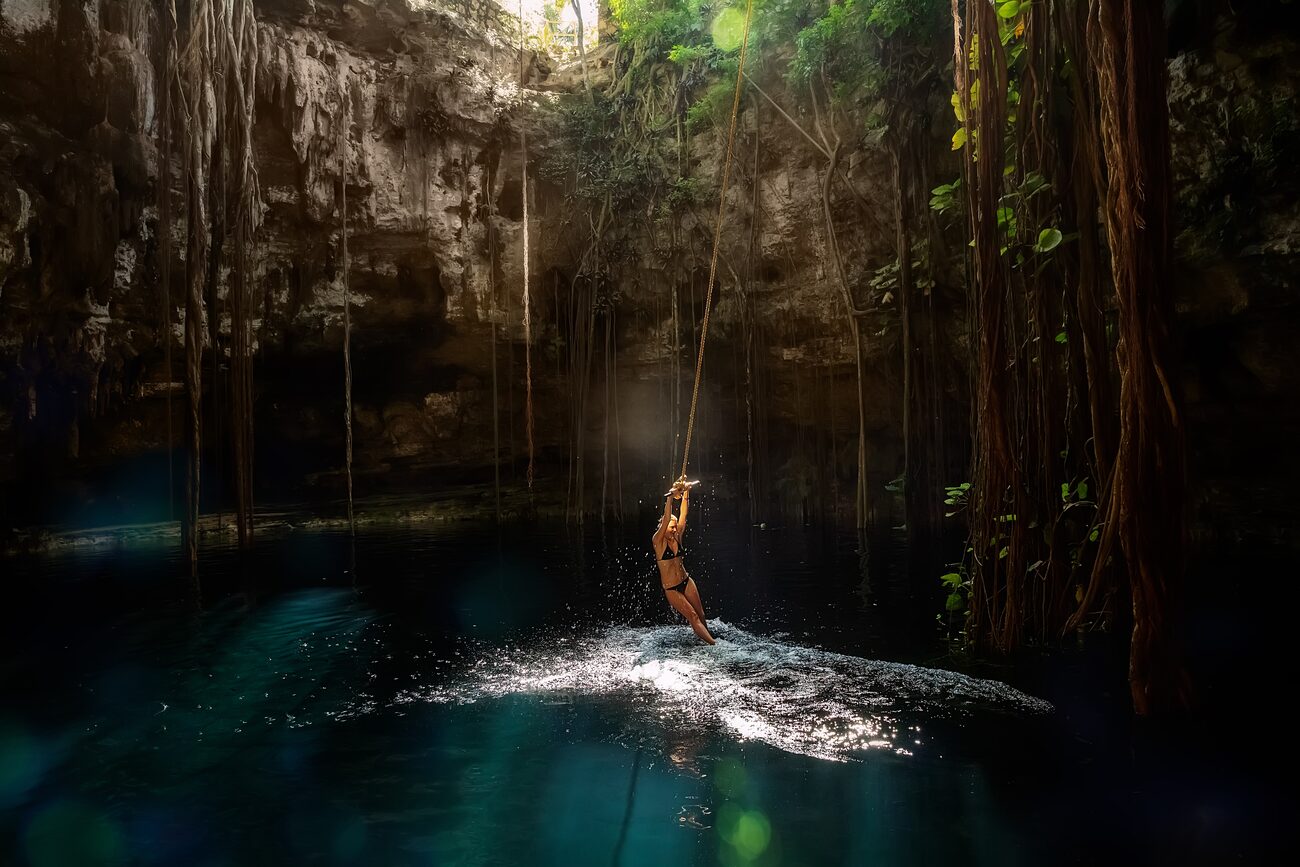Staying sober on vacation may feel daunting, but with these behavioral health expert-approved tips, it’s may not be out of reach.
For some, the lure of the all-inclusive is a summer rock ballad, full of fun, energy, and promise of unlimited drinks for an equally unlimited good time. However, for others, it’s a siren song fraught with temptation, danger, and a slippery slope to a bottom that’s difficult to crawl out of. Travelers recovering from a struggle with alcohol may have a hard time opting for an all-inclusive vacation due to a (commendably responsible) concern of falling under the spell of spirits again.
However, there are ways to make all-inclusives literally more all-inclusive, including for those fighting these particular demons. We received tips from Sarah O’Brien of Ark Behavioral Health in Massachusetts, on some of the best ways to stay in active recovery even amid the temptation and drinking culture at resorts. Here is her professional best advice on how to stay influence-free and present on vacation and make sure you’re making the best memories mindfully.
- Talk to Your Travel Advisor.
All all-inclusive resorts are not created equal. Many vacationers associate all-inclusive properties with beachfront excess, rowdy pool parties, and late-night entertainment, but the truth is, different resorts cater to different crowds. To avoid temptation, share your concerns with an experienced travel advisor to make sure that you’re reducing your risk. A professional will be familiar with the vibes of different hotels and destinations, and can usually speak from firsthand experience. A good travel advisor can make all the difference between having a relaxing, wellness-focused retreat where you come back recharged or feeling left out as you duck between spring breakers chugging beers.
- Understand Your Triggers.
“An important part of any recovery plan is understanding triggers,” O’Brien says. These are highly personal and can range from just being in a bar or having access to alcohol or just being anxious or alone. “Before you travel, make a physical or mental list and come up with practical ways to address those issues when and if they arise,” she advises. By ID-ing what can cause a spiral, you’re more empowered to avoid them and/or are prepared to reject them.
- Eat with Mood in Mind.
Moderation is key, even when presented with the endless smorgasbord of all-inclusives. While it may be tempting to overindulge in food in an effort to fill the gaps as the people around you imbibe, O’Brien urges vacationers to “remember that nutritional balance is vital to maintaining mood and emotional balance in recovery, so make it a point to watch what you’re consuming and how it makes you feel.” Understanding how what you eat can affect your mood and vulnerability, especially when choosing food that is associated with certain types of drinks—which could be a trigger. For example, if bar food like wings makes you crave a beer, opt for some ceviche or something that isn’t as typical.
- Stay Accountable.
There are different ways to create accountability touchpoints. When you’re on vacation, there’s usually one built in: company. When you travel with a partner, spouse, family member, or friend, it’s easy enough to ask them to double as your accountability buddy to help you stay on track. “Solo trips can test a person’s sobriety,” O’Brien has found. But if you are going it alone, you can still rely on those who are emotionally close to you to provide backup. “Be sure to check in with a friend or family member regularly, call your sponsor if you feel the urge to drink … if you usually attend a 12-step group, you might even find a recovery group meeting in the area you’re traveling to!”
- Continue Recovery Habits.
Inner strength can come from the safety of an anchored routine. Just because you’re on vacation doesn’t mean you have to sacrifice that! “If you typically start your mornings with gratitude journaling or meditation, keep up those practices while you’re traveling,” she suggests. Many all-inclusive resorts offer early morning yoga classes to help you start your day mindfully, and there’s no more soothing of a place to journal than on your hotel room balcony, at the beach before it gets busy, or even on the terrace of your breakfast buffet restaurant. Private lounges for club or preferred level guests are also great places for thoughtful solitude. According to O’Brien, maintaining your habits can help to keep your stress levels and emotions stable.
- Practice Self-Care.
The above is part of self-care, but it goes on from there. Take your vacation a step further from your regular detox to unplug from, say, social media as well as work and other daily life causes of stress. O’Brien believes that “If you’re on a vacation, it’s the perfect tine to focus on your physical and emotional needs. Take your tine getting ready in the morning, practice verbal affirmations … use the travel time to relax and care for yourself.” Being grounded and positively focused can help to dampen the lure of drinking.
- Embrace Activity.
While lazing about is one great way to relax, allowing yourself to get bored can also make taking a tipple seem tempting. So make sure to ask your travel advisor to help you make the most of your vacation time by planning ahead for tours and excursions with trusted and vetted destination companies like Amstar DMC. Together, they can offer you plenty to keep you busy and entertained, such as outings to museums or historic sites, hiking and soft adventure tours, and more. Read the descriptions to make sure that your outing offers non-alcoholic options (for example, notes that “soft drinks are included” and family-friendly activities are usually great keywords) and opt not for booze cruises or the like.
- Scope the Situation.
Mentally prepare yourself for potential encounters and stressors on vacation, from bars and beach parties to friends and relatives that may trigger an impulse response to reach for a drink. As you get ready for your trip, scope out time-out spots you can escape to. When you arrive, it can be as simple as finding a nice bathroom to duck into when you’re feeling overwhelmed … or checking the exits, as O’Brien recommends, so you can beat a hasty retreat back to your room if need be.
- Practice Saying No.
With language barriers and a pervasive drinking culture, it can seem at first daunting to enter any free-flowing environment. However, again, your travel advisor can help to make sure that you mitigate that risk by selecting a more appropriate resort for you. Typically, a smile and a simple “no, thank you” is enough for the offer to move on as they service others. In the meantime, O’Brien says, “If you’re traveling with or visiting people who don’t know about your decision to stay sober, have a few responses prepared to the question, ‘Why aren’t you drinking?’ You might say ‘I’m working on my health right now,’ ‘I make more memories on trips when I don’t drink,’ or ‘I’m driving the rental, so I’ll pass.”
Ready to book that detox vacation? Here are some ideas to bring up to your travel advisor. Think about Los Cabos as a wellness destination, Hotel Xcaret Arte and Casa de la Playa for something experiential, soft adventure destinations, or family-oriented properties like the recently renovated All-Inclusive Hard Rock Hotel & Casino in Punta Cana. Then visit www.TravelAdvisorsGetYouThere.com to find the pro that will pair you with the right property to support your sobriety.

